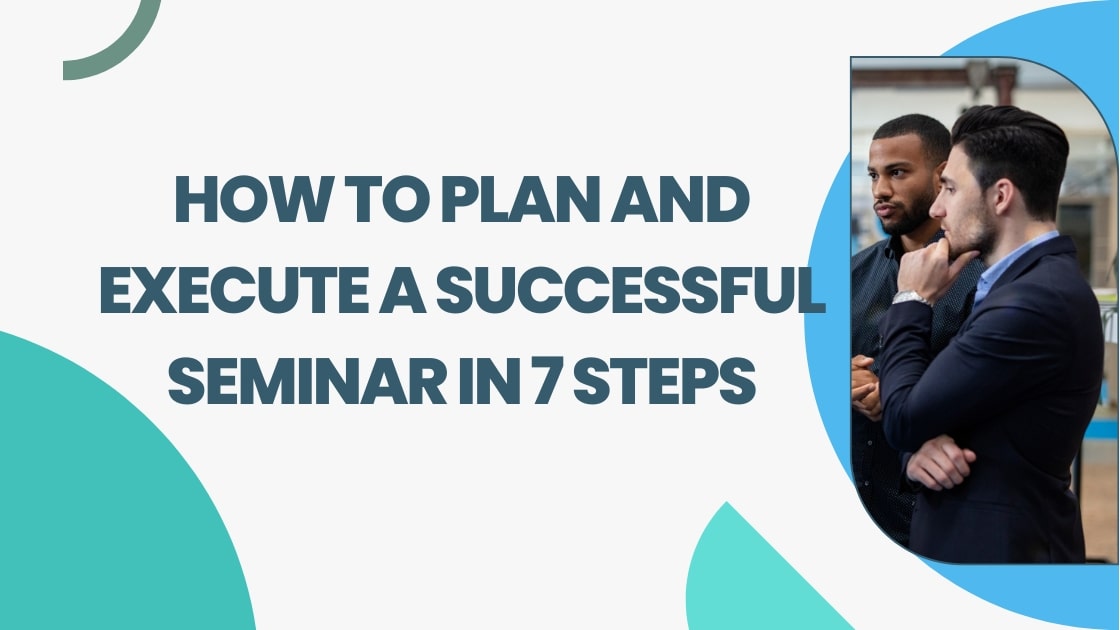How to Plan and Execute a Successful Seminar in 7 Steps

Introduction:
Organizing a successful seminar requires a lot of planning, preparation, and attention to detail. From selecting the right venue to promoting your event, there are many aspects to consider to ensure that your seminar is a success. In this guide, we will take you through seven simple steps to plan and execute a successful seminar.
Step 1: Define Your Objectives
The first step in planning a successful seminar is to define your objectives. What is the purpose of your seminar? Who is your target audience? What do you want to achieve with your event? Answering these questions will help you to plan the content, structure, and marketing of your seminar.
Step 2: Select Your Venue
Selecting the right venue for your seminar is crucial. You need to choose a location that is easily accessible, can accommodate your attendees comfortably, and has the necessary facilities such as audio-visual equipment, parking, and catering. The venue should also align with the tone and theme of your seminar.
Step 3: Plan Your Content
The content of your seminar is the most important aspect of your event. You need to select topics that are relevant and engaging to your target audience. You also need to identify and select speakers who can provide valuable insights and experiences to your attendees. Creating an agenda that maximizes engagement and participation is also critical.
Step 4: Promote Your Seminar
Promoting your seminar is essential to attract attendees and ensure its success. You need to leverage a variety of marketing channels such as social media, email marketing, and online advertising. Creating a compelling message that speaks to the needs and interests of your target audience is also critical.
Step 5: Register Attendees
The registration process is an important step in planning a successful seminar. You need to make it easy for attendees to register and provide all the necessary information such as their name, contact information, and payment details. Creating a seamless and user-friendly registration process is key to ensuring a high attendance rate.
Step 6: Plan for Logistics
Planning for logistics is crucial to the success of your seminar. You need to ensure that all the necessary equipment, supplies, and personnel are in place. This includes audio-visual equipment, catering, transportation, and staff. Preparing for any potential issues or challenges is also important to ensure smooth sailing on the day of your event.
Step 7: Execute Your Seminar
The day of your seminar is finally here, and it's time to put your plan into action. Ensure that all logistics are in place, that your speakers are prepared and on time, and that the attendees are engaged and participating in the event. Make sure to monitor the event's progress and be prepared to make adjustments if needed.
Conclusion:
Planning and executing a successful seminar requires a lot of effort, but by following these seven steps, you can ensure that your event goes off without a hitch. Remember to define your objectives, select your venue, plan your content, promote your seminar, register attendees, plan logistics, and execute your seminar with care and attention to detail. With these strategies in place, you can plan and execute a seminar that will leave a lasting impression on your attendees and your organization.